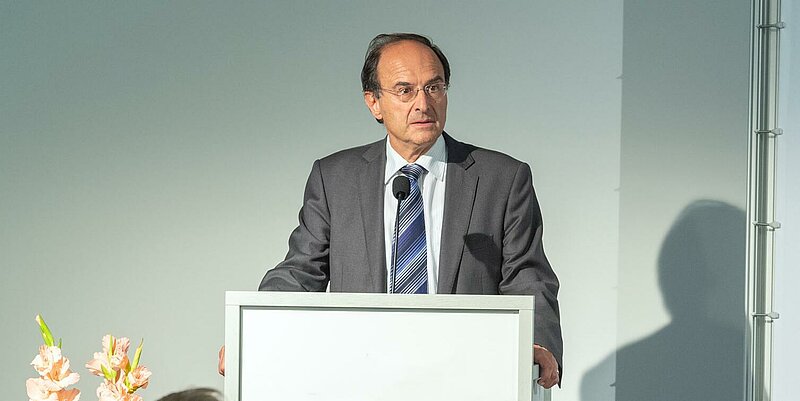
In new paper, Dennis Snower calls for a profound rethinking of economic decision-making after the COVID-19 crisis.
The immediate response to the COVID-19 pandemic by governments around the world provides short-term relief but fails to tackle the underlying problems in the long run, says Dennis Snower, Professor of Macroeconomics and Sustainability at the Hertie School and President of the Global Solutions Initiative in a new paper published by the Brookings Institution. Rich countries have temporarily averted economic and social disaster through massive spending programmes, but have not yet focused on the medium- and longer-term effects, which may actually be right around the corner.
One of the major consequences of COVID-19, he argues in his paper, “The socioeconomics of pandemics”, is a so-called Great Economic Mismatch, which can only be overcome by implementing “readaptation policies.” Snower describes this mismatch: "Vast swathes of the world economy have been closed down through the widespread social distancing regulations; at the same time, the demand for essentials, produced and consumed through physically distanced activities, has exploded. Thus, over the medium run many countries face the prospect of massive excess supply alongside massive excess demand: for example, large inventories of face masks and medical gowns in some production centers, while doctors and nurses elsewhere treat COVID-19 patients without adequate protection; food rotting in the fields, while some urban inhabitants go hungry. "
He defines the Great Economic Mismatch as: “deficient demand for things requiring close physical interactions among people and deficient supply of things compatible with social distancing, where appropriate.”
This problem cannot be solved by relying on free market forces, and requires “readaptation policies”, which he defines as “policies that induce people to readapt to the novel economic conditions created by the pandemic and that make economies more resilient to such shocks in the future.”
One such readaptation policy, for instance, is the benefit transfer programme in the labor market, which gives the currently unemployed people the opportunity to transfer their current income support to provide hiring and training credits to firms that hire and train them.
“Readaptation policies can also be implemented with respect to investment in physical capital, such as delivery vans for food producers, construction of new hospitals, and production of face masks,” Snower adds.
In the medium run, these policies must redirect resources towards production and consumption processes compatible with social distancing. In the long run, the policies represent a new economic strategy that provide automatic incentives for an economic recovery and make economies more resilient to shocks causing such mismatches in the future.
Snower suggests a greater focus on economic resilience and the mobilisation of people’s prosocial motives, as well as a stronger international cooperation to tackle global problems through identity-shaping narratives and institutions of multilevel governance.
Read the full paper here.
